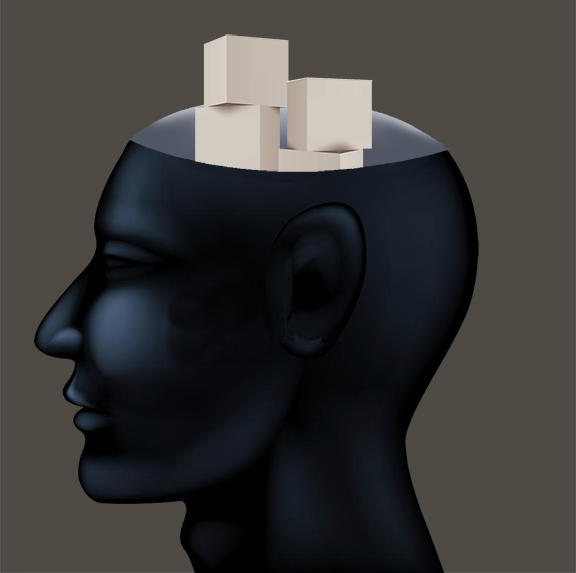The Significance Of Nothing
An Important Concept : Nothing
Indeed, "nothing" is more than a mere absence or void; it is a profound concept that has intrigued philosophers, scientists, theologians, and thinkers for millennia. It forms a cornerstone in several philosophical arguments, scientific theories, and existential contemplations.

Philosophy: In the realm of philosophy, "nothing" plays an essential role in existentialism and metaphysics. Heidegger, a key figure in existential philosophy, discussed the notion of nothing in his lecture "What is Metaphysics?" He claimed that "the Nothing itself nothings," suggesting that the concept of nothingness is not just a void or an absence, but a state that actively determines and negates our existence. "Nothing" forms the very basis of understanding being and existence. Similarly, in Eastern philosophies, "nothing" or emptiness is a crucial concept. For instance, in Buddhism, the concept of Sunyata refers to the inherent emptiness or the absence of permanent self in all phenomena.
Science: In physics, the concept of "nothing" has undergone significant evolution. From the vacuum of space to quantum field theory, nothingness is not merely emptiness but an active participant in the universe. In quantum field theory, a vacuum is not empty but full of fluctuating energy and particles that pop in and out of existence. This understanding led to concepts like quantum vacuum fluctuations and virtual particles, which are key to explaining phenomena such as the Casimir effect and Hawking radiation. The notion of "nothing" in the cosmos also leads to the intriguing question that cosmologists often grapple with: Why is there something rather than nothing?
Psychology: "Nothing" also has a significant role in psychology, especially in areas like mindfulness and meditation where the goal can often be to "think of nothing" and clear the mind. This process often leads to significant psychological insights and is used as a therapeutic strategy in various mental health treatments.

Have you heard about the Nothing Box Theory as it relates to the way the male brain organizes their thoughts into boxes? I initially treated this theory as a bit of a spoof particularly when I read The nothing box theory explains the vegetative state men exhibit at times. By exposing the ideas of this theory, men and women can educate themselves on this subject. So, the next time a guy looks lost in thought, know to blame it on their nothing box. .
Until I saw a YouTube called: Men's Brains and Women's Brains with Mark Gungor (Nothing Box)
Linguistics: In linguistics, the concept of "nothing" offers an intriguing exploration into how language and semantics shape our perception of reality. We often use "nothing" as a placeholder for concepts we cannot adequately explain, or for aspects that don't seem relevant to the context. This use and understanding of "nothing" speak to our cognitive limitations and how we navigate them.
How about these Idioms and Phrases
... nothing but
... nothing doing
... nothing if not
... nothing like
... nothing new under the sun
... nothing of the kind
... nothing short of
... nothing to do with
... nothing ventured, nothing gained
... nothing to sneeze at
... appropos of nothing
... not for nothing
... nothing flat
... stop at nothing
... nothing new under the sun
Mathematics: In the world of mathematics, the concept of zero (which essentially symbolizes "nothing") was a revolutionary invention that enabled significant advancements in arithmetic, calculus, and other areas of study. It's fascinating to consider how "nothing" can be such a vital part of a system that shapes our understanding of the universe.
Art and Literature & Music: In literature and visual arts, "nothing" can be a powerful symbol.
At first there is nothing, then there is a profound nothingness, after that a blue profundity. — Yves Klein

Yves Klein, Immaterieller Raum (Immaterial Space)
Museum Haus Lange, Krefeld, 1961 (restored 2009)
The emptying and whitewashing of the place was for Klein a manifesto of immateriality, a concept central to his thinking. During his career he sought to embrace void and space by using different mediums as painting, sculpture, or performance.
To learn more about Yves Klein's Le Vide 1958 show in an empty gallery space - Nothing more, nothing less - that resulted in a spectacular opening night, read this article from LITTLEARTNECOTES.
Consider these album covers which all have the word Nothing in their titles: MESHUGGAH, a Swedish extreme metal band formed in Umea in 1987 (upper left) | Spirits, an American rock band from San Antonio, Texas formed in 2003 (upper right) | The Plot in You, an American rock band formed in Hancock County, Ohio in 2010 (lower left) | Drake, a Canadian rapper, singer, and songwriter (lower right)

In Shakespeare's "Much Ado About Nothing," the title is a play on words, where "nothing" is pronounced as "noting," suggesting a theme of misunderstanding and deceit. In visual arts, the use of negative space (which can be seen as the "nothing" of the composition) can convey strong emotions or draw attention to the subject. The beauty of this concept is that it allows room for interpretation and individual experience, which is the core of any art form.
Current books that have NOTHING in their titles include: Waiting for Nothing by Tom Kromer, a realistic account of life as a homeless man during the Great Depression.| Nothing You Don't Already Know by Alexander den Heijer, a brief guide to making the most of your life | Nothing by New Science magazine with surprising insights everywhere from zero to oblivion | Nothing by Annie Barrows, a Y/A debut novel

Sociology: The notion of "nothing" becomes significant in a societal context as well, especially when we consider the idea of 'doing nothing'. In a society driven by productivity and constant action, choosing to do nothing is often frowned upon. However, there is a growing movement that advocates for the right to be idle, to disconnect and step back from ceaseless productivity, reflecting a reevaluation of "nothing" as something necessary and valuable.
Technology and AI: As we move into an era of artificial intelligence and machine learning, the concept of "nothing" becomes intriguingly complex. For instance, how do you teach an AI to understand "nothing"? In computer programming, "null" or "none" values represent a form of nothingness, indicating the absence of data or value. However, the philosophical and conceptual layers of "nothing" present a challenge for AI to fully grasp and respond to.

Environmental Studies: In environmental discourse, "nothing" or wilderness untouched by human activities is highly significant. The value of leaving parts of nature as "nothing" — undisturbed and untamed — has grown increasingly important in a world grappling with climate change and biodiversity loss.
Epistemology: Epistemology, the study of knowledge, often deals with the concept of "nothing" as well. In this context, "nothing" refers to the state of not knowing or ignorance. By exploring this "nothingness" of knowledge, we are led to the understanding of "knowing that we know nothing," a concept famously associated with Socrates. This philosophical humility propels the pursuit of knowledge, embodying the essence of the scientific method and critical thinking.
Theology: Many religious doctrines grapple with the concept of "nothingness." For instance, creation ex nihilo is a Latin phrase meaning "creation out of nothing," which is a doctrine of many religions, including Christianity, that suggests the universe was formed from nothing by a divine entity.

Ethics: In ethics, the concept of "nothing" is pivotal when considering the moral implications of actions that result in no harm or no action at all. Is doing nothing a neutral act, or can it carry moral weight? In situations where inaction can result in harm, as in the "bystander effect," "doing nothing" can indeed have ethical implications.
Political Science: The political sphere is not immune to the influence of "nothing." For example, consider the strategy of non-action or passive resistance used effectively in various civil rights movements. Here, "doing nothing" in the face of unfair laws or regulations became a powerful tool for social and political change.
Economics: "Nothing" has economic implications as well. Concepts such as opportunity cost—the cost of foregoing the next best alternative—mean that choosing to do "nothing" (i.e., not investing, not working, etc.) has real and often quantifiable costs. Similarly, the concept of zero-cost or free goods in economics also hinges on the notion of getting something for "nothing," although in reality, this is rarely the case.
Metaphysics: Lastly, in metaphysics—the branch of philosophy that explores the fundamental nature of reality—including the relationship between mind and matter, substance and attribute, potentiality and actuality. Here, "nothing" is often juxtaposed with "being." The question of why there is something rather than nothing leads to discussions about the nature of reality and existence.
Consider this 2003 article on NOTHINGNESS in the Stanford Encyclopedia of Philosophy
Since metaphysics is the study of what exists, one might expect metaphysicians to have little to say about the limit case in which nothing exists. But around the fifth century BCE in China, India, and Greece, philosophers turned from what is, to what is not (Sorensen 2022). Ever since, there has been commentary on omissions, holes, vacuums, and the possibility of an empty world.
This survey starts with nothingness at a global scale and then explores local pockets of nothingness.
In summary, "nothing" is a surprisingly versatile and potent concept with a wide range of applications and implications. Far from being the mere absence or negation, "nothing" is an active and often foundational element within many fields of human inquiry and understanding. The more we delve into the concept of "nothing," the more it seems to offer in terms of rich intellectual exploration. Its pervasive nature in all facets of human thinking underscores our ongoing quest to understand and make sense of the world, even through the lens of "nothing."
